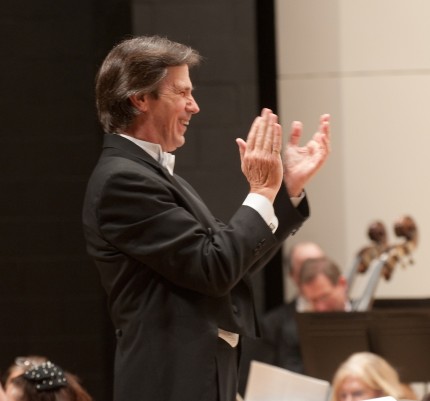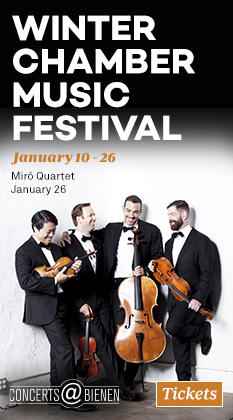Chicago Master Singers serve up a generous program of English rarities

The unwelcome news that Alan Heatherington will shutter his Ars Viva orchestra next month is mitigated to some extent by the fact that the versatile conductor will continue to lead the Chicago Master Singers as music director.
Certainly, with enterprising programs like that presented Friday night at Divine Word Chapel in Techny, the North Shore chorus’s audience and all fans of rare repertory will continue to be well served. Three English choral works were presented in a generous program that spanned nearly three hours.
In the term of the moment, Heatherington is clearly transitioning from conductor to Anglican minister. His Nehru collar bestowed a clerical flavor that seemed sartorially suitable for a trio of works deeply imbued in the Anglo-Christian tradition.
The evening’s main work was Sir Edward Elgar’s The Light of Life. Written in 1896, the oratorio predates The Dream of Gerontius by three years and can be thought of as a trial run for Elgar’s later choral masterwork.
The Light of Life is not on the same inspired level, with a rather episodic treatment of the tale of Jesus healing the blind man, unaided by the stodgy Victorian text of the Reverend Capel-Cure that awkwardly bridges the scriptural passages.
But the music is Elgar through and through. At its best Light of Life displays the English composer’s orchestral mastery, skillful choral writing and characteristic vein of rich, soaring melody.
Heatherington has a fine feel for Elgar’s restless, challenging idiom and led a crackling performance of surging momentum, drawing committed playing from the Ars Viva orchestra. The darkly moving orchestral Meditation that opens the work was quite beautifully played, and the triumphant final chorus, “Light of the World, we know Thy praise” proved overwhelming in sonic impact with chorus and orchestra in full cry.
Vocally, the performance was more uneven–in no small part due to the cloudy reverberant acoustic of the ornate space. The singing of the large chorus had bold presence, agility and impact yet words were often indecipherable without reference to the program’s printed text.
Heatherington’s regular vocal quartet offered the same mixed rewards as in past outings. Michelle Areyzaga was the standout, her high soprano–and exemplary diction–soaring in her solo moments as the blind man’s mother. As Jesus, Gerard Sundberg brought a burnished weight and authority to his aria, “I am the Good Shepherd.”
Peder Reiff was ardent and impassioned as the blind man though his wiry tenor could have benefited from greater tonal refinement and more consistent projection. Mezzo-soprano Sarah Holman was a wobbly and fitfully indistinct narrator.
The Stabat Mater of Charles Villiers Stanford preceded Elgar’s oratorio and rather drastically showed the pallid shape that English music was in before Elgar appeared on the scene. Even Light of Life sounds like a masterpiece next to the Irish composer’s Stabat mater—a work that seems reflective of the tide of hoary academic works that came out of the Victorian choral tradition.
There are some effective moments, as with the cinematic drama of the opening Prelude, the poignant Intermezzo, and the benedictory glow of the final section, well rendered by the strings under Heatherington’s alert direction. Yet too often Stanford’s alternation of soloists, chorus and orchestra sounds unwieldy and the thematic material is less than memorable.
Heatherington clearly believes in this score, and led a heaven-storming performnce with galvanic intensity in the big climaxes for chorus and orchestra. The finest moments were once again provided by Areyzaga’s sensitive and evocative solo singing.
The concert led off with Gerald Finzi’s Magnificat, which received a majestic and sensitive performance, although the acoustic fuzz again made the clarity of the chorus’s words a sometime thing.
The program will be repeated 7 p.m. Sunday at Divine Word Chapel. chicagomastersingers.org
Posted in Performances
